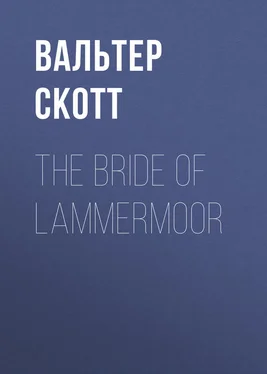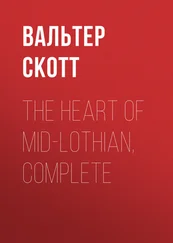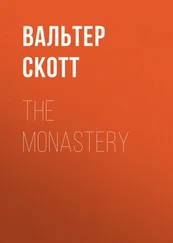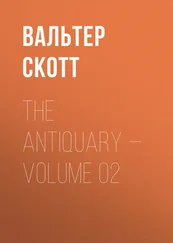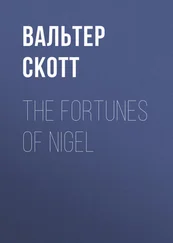Вальтер Скотт - The Bride of Lammermoor
Здесь есть возможность читать онлайн «Вальтер Скотт - The Bride of Lammermoor» — ознакомительный отрывок электронной книги совершенно бесплатно, а после прочтения отрывка купить полную версию. В некоторых случаях можно слушать аудио, скачать через торрент в формате fb2 и присутствует краткое содержание. Жанр: Философия, literature_19, foreign_antique, foreign_prose, на английском языке. Описание произведения, (предисловие) а так же отзывы посетителей доступны на портале библиотеки ЛибКат.
- Название:The Bride of Lammermoor
- Автор:
- Жанр:
- Год:неизвестен
- ISBN:нет данных
- Рейтинг книги:4 / 5. Голосов: 1
-
Избранное:Добавить в избранное
- Отзывы:
-
Ваша оценка:
- 80
- 1
- 2
- 3
- 4
- 5
The Bride of Lammermoor: краткое содержание, описание и аннотация
Предлагаем к чтению аннотацию, описание, краткое содержание или предисловие (зависит от того, что написал сам автор книги «The Bride of Lammermoor»). Если вы не нашли необходимую информацию о книге — напишите в комментариях, мы постараемся отыскать её.
The Bride of Lammermoor — читать онлайн ознакомительный отрывок
Ниже представлен текст книги, разбитый по страницам. Система сохранения места последней прочитанной страницы, позволяет с удобством читать онлайн бесплатно книгу «The Bride of Lammermoor», без необходимости каждый раз заново искать на чём Вы остановились. Поставьте закладку, и сможете в любой момент перейти на страницу, на которой закончили чтение.
Интервал:
Закладка:
“In that case,” replied I, “Paining excels the ape of the renowned Gines de Passamonte, which only meddled with the past and the present; nay, she excels that very Nature who affords her subject; for I protest to you, Dick, that were I permitted to peep into that Elizabeth-chamber, and see the persons you have sketched conversing in flesh and blood, I should not be a jot nearer guessing the nature of their business than I am at this moment while looking at your sketch. Only generally, from the languishing look of the young lady, and the care you have taken to present a very handsome leg on the part of the gentleman, I presume there is some reference to a love affair between them.”
“Do you really presume to form such a bold conjecture?” said Tinto. “And the indignant earnestness with which you see the man urge his suit, the unresisting and passive despair of the younger female, the stern air of inflexible determination in the elder woman, whose looks express at once consciousness that she is acting wrong and a firm determination to persist in the course she has adopted – ”
“If her looks express all this, my dear Tinto,” replied I, interrupting him, “your pencil rivals the dramatic art of Mr. Puff in The Critic, who crammed a whole complicated sentence into the expressive shake of Lord Burleigh’s head.”
“My good friend, Peter,” replied Tinto, “I observe you are perfectly incorrigible; however, I have compassion on your dulness, and am unwilling you should be deprived of the pleasure of understanding my picture, and of gaining, at the same time, a subject for your own pen. You must know then, last summer, while I was taking sketches on the coast of East Lothian and Berwickshire, I was seduced into the mountains of Lammermoor by the account I received of some remains of antiquity in that district. Those with which I was most struck were the ruins of an ancient castle in which that Elizabeth-chamber, as you call it, once existed. I resided for two or three days at a farmhouse in the neighbourhood, where the aged goodwife was well acquainted with the history of the castle, and the events which had taken place in it. One of these was of a nature so interesting and singular, that my attention was divided between my wish to draw the old ruins in landscape, and to represent, in a history-piece, the singular events which have taken place in it. Here are my notes of the tale,” said poor Dick, handing a parcel of loose scraps, partly scratched over with his pencil, partly with his pen, where outlines of caricatures, sketches of turrets, mills, old gables, and dovecots, disputed the ground with his written memoranda.
I proceeded, however, to decipher the substance of the manuscript as well as I could, and move it into the following Tale, in which, following in part, though not entirely, my friend Tinto’s advice, I endeavoured to render my narrative rather descriptive than dramatic. My favourite propensity, however, has at times overcome me, and my persons, like many others in this talking world, speak now what then a great deal more than they act.
CHAPTER II
Well, lord, we have not got that which we have;
‘Tis not enough our foes are this time fled,
Being opposites of such repairing nature.
IN the gorge of a pass or mountain glen, ascending from the fertile plains of East Lothian, there stood in former times an extensive castle, of which only the ruins are now visible. Its ancient proprietors were a race of powerful and warlike carons, who bore the same name with the castle itself, which was Ravenswood. Their line extended to a remote period of antiquity, and they had intermarried with the Douglasses, Humes, Swintons, Hays, and other families of power and distinction in the same country. Their history was frequently involved in that of Scotland itself, in whose annals their feats are recorded. The Castle of Ravenswood, occupying, and in some measure commanding, a pass betweixt Berwickshire, or the Merse, as the southeastern province of Scotland is termed, and the Lothians, was of importance both in times of foreign war and domestic discord. It was frequently beseiged with ardour, and defended with obstinacy, and, of course, its owners played a conspicuous part in story. But their house had its revolutions, like all sublunary things: it became greatly declined from its splendour about the middle of the 17th century; and towards the period of the Revolution, the last proprietor of Ravenswood Castle saw himself compelled to part with the ancient family seat, and to remove himself to a lonely and sea-beaten tower, which, situated on the bleak shores between St. Abb’s Head and the village of Eyemouth, looked out on the lonely and boisterous German Ocean. A black domain of wild pasture-land surrounded their new residence, and formed the remains of their property.
Lord Ravenswood, the heir of this ruined family, was far from bending his mind to his new condition of life. In the civil war of 1689 he had espoused the sinking side, and although he had escaped without the forfeiture of life or land, his blood had been attainted, and his title abolished. He was now called Lord Ravenswood only in courtesy.
This forfeited nobleman inherited the pride and turbulence, though not the forture, of his house, and, as he imputed the final declension of his family to a particular individual, he honoured that person with his full portion of hatred. This was the very man who had now become, by purchase, proprietor of Ravenswood, and the domains of which the heir of the house now stood dispossessed. He was descended of a family much less ancient than that of Lord Ravenswood, and which had only risen to wealth and political importance during the great civil wars. He himself had been bred to the bar, and had held high offices in the state, maintaining through life the character of a skilful fisher in the troubled waters of a state divided by factions, and governed by delegated authority; and of one who contrived to amass considerable sums of money in a country where there was but little to be gathered, and who equally knew the value of wealth and the various means of augmenting it and using it as an engine of increasing his power and influence.
Thus qualified and gifted, he was a dangerous antagonist to the fierce and imprudent Ravenswood. Whether he had given him good cause for the enmity with which the Baron regarded him, was a point on which men spoke differently. Some said the quarrel arose merely from the vindictive spirit and envy of Lord Ravenswood, who could not patiently behold another, though by just and fair purchase, become the proprietor of the estate and castle of his forefathers. But the greater part of the public, prone to slander the wealthy in their absence as to flatter them in their presence, held a less charitable opinion. They said that the Lord Keeper (for to this height Sir William Ashton had ascended) had, previous to the final purchase of the estate of Ravenswood, been concerned in extensive pecuniary transactions with the former proprietor; and, rather intimating what was probable than affirming anything positively, they asked which party was likely to have the advantage in stating and enforcing the claims arising out of these complicated affairs, and more than hinted the advantages which the cool lawyer and able politician must necessarily possess over the hot, fiery, and imprudent character whom he had involved in legal toils and pecuniary snares.
The character of the times aggravated these suspicions. “In those days there was no king in Israel.” Since the departure of James VI. to assume the richer and more powerful crown of England, there had existed in Scotland contending parties, formed among the aristocracy, by whom, as their intrigues at the court of St. James’s chanced to prevail, the delegated powers of sovereignty were alternately swayed. The evils attending upon this system of government resembled those which afflict the tenants of an Irish estate, the property of an absentee. There was no supreme power, claiming and possessing a general interest with the community at large, to whom the oppressed might appeal from subordinate tyranny, either for justice or for mercy. Let a monarch be as indolent, as selfish, as much disposed to arbitrary power as he will, still, in a free country, his own interests are so clearly connected with those of the public at large, and the evil consequences to his own authority are so obvious and imminent when a different course is pursued, that common policy, as well as common feeling, point to the equal distribution of justice, and to the establishment of the throne in righteousness. Thus, even sovereigns remarkable for usurpation and tyranny have been found rigorous in the administration of justice among their subjects, in cases where their own power and passions were not compromised.
Читать дальшеИнтервал:
Закладка:
Похожие книги на «The Bride of Lammermoor»
Представляем Вашему вниманию похожие книги на «The Bride of Lammermoor» списком для выбора. Мы отобрали схожую по названию и смыслу литературу в надежде предоставить читателям больше вариантов отыскать новые, интересные, ещё непрочитанные произведения.
Обсуждение, отзывы о книге «The Bride of Lammermoor» и просто собственные мнения читателей. Оставьте ваши комментарии, напишите, что Вы думаете о произведении, его смысле или главных героях. Укажите что конкретно понравилось, а что нет, и почему Вы так считаете.
